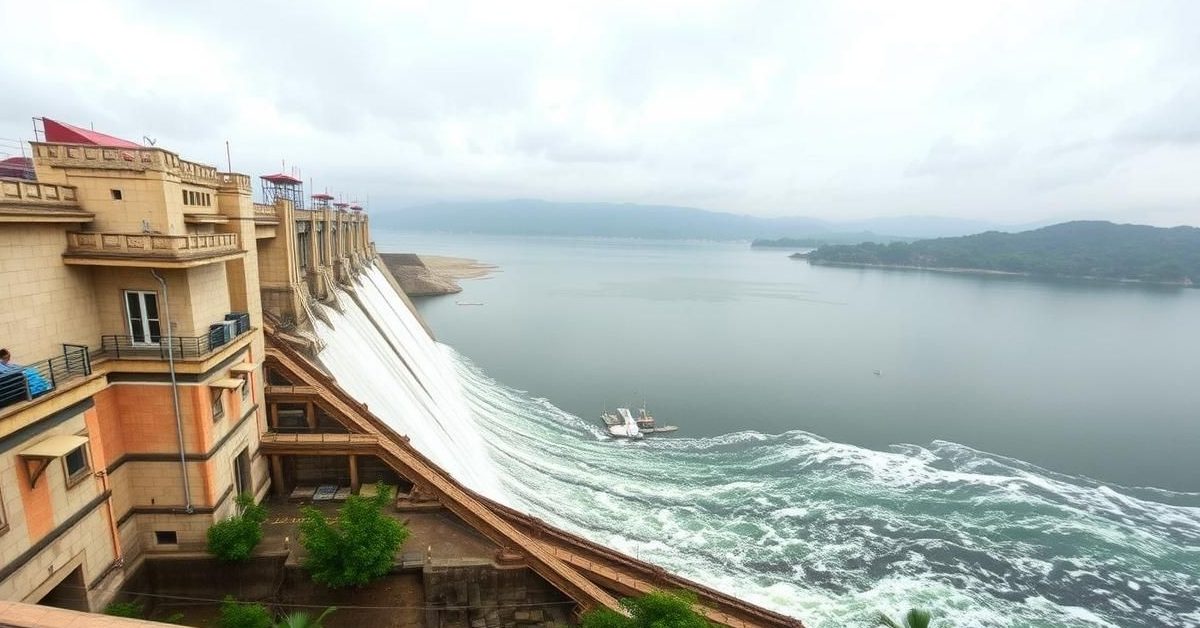Stay informed with the latest current affairs from July 20 to July 26, 2025, covering a range of topics from sports and history to global events and scientific advancements, crucial for competitive examinations.
Durand Cup: India’s Oldest Football Tournament
The 134th edition of the Durand Cup, Asia’s oldest football tournament, recently kicked off in Kolkata. This prestigious event holds the distinction of being the oldest extant football competition outside the British Isles.
Established in 1888, the tournament is named after Sir Mortimer Durand, a British diplomat renowned for demarcating the contested international border between British India (now Pakistan) and Afghanistan. Initially, it served as leisure for British troops.
Historically, until 1940, the Durand Cup was held annually in Shimla, the summer capital of the British Raj. Mohun Bagan, a civilian side from Calcutta, made history in 1922 by becoming the first Indian team to participate, paving the way for broader Indian involvement.
The Significance of the Paika Rebellion
The Paika Rebellion, a significant historical event, has been in the news recently regarding its inclusion in NCERT textbooks. Former Odisha Chief Minister Naveen Patnaik expressed concerns over its temporary omission.
The Paikas were a class of military retainers in Odisha, recruited by the Gajapati rulers since the 16th century. They provided martial services to the king and, in return, received hereditary rent-free land (nish-kar jagirs), which they cultivated during peacetime.
This rebellion of 1817 is considered a vital early armed opposition against the British East India Company’s expansion and its disruption of existing social structures.
AdFalciVax: A New Hope Against Malaria
The Indian Council of Medical Research (ICMR) has announced a promising new vaccine candidate for malaria, named AdFalciVax. This development could mark a significant step in the global fight against the disease.
AdFalciVax primarily targets two components of Plasmodium falciparum, the most common cause of malaria in humans. While it shows promise against this specific pathogen, it is currently ineffective against Plasmodium vivax, which is responsible for many malaria cases in India.
Malaria is a parasitic infection transmitted by mosquitoes, leading to symptoms like fever, chills, and can result in severe complications and even death if left untreated.
International Court of Justice’s Climate Ruling
The International Court of Justice (ICJ) delivered a landmark advisory opinion with significant implications for global climate action. The Hague-based court, the principal judicial body of the United Nations, stated that countries have a legal obligation to reduce greenhouse gas emissions.
This ruling suggests that nations could be held liable for compensation if they fail to meet these obligations. While an advisory opinion doesn’t immediately bind any country, it can heavily influence future litigation and policies related to climate change.
The ICJ comprises 15 judges, elected to nine-year terms by both the United Nations General Assembly and the Security Council. These judges are eligible for re-election, with elections typically held annually in New York during the autumn session of the General Assembly.
Proposed National Sports Governance Bill
A new National Sports Governance Bill, introduced in Lok Sabha, aims to overhaul sports administration in India. The bill proposes two major structural changes to the country’s sports landscape.
Firstly, it suggests forming a National Sports Board with extensive powers to set rules and oversee the functioning of sports federations, notably including the Board of Control for Cricket in India (BCCI).
Secondly, the bill proposes establishing a National Sports Tribunal. This tribunal would wield powers similar to a civil court, adjudicating disputes ranging from athlete selections to federation elections. Decisions from this tribunal could be appealed directly to the Supreme Court.
Prasat Ta Muen Thom: A Border Flashpoint
Prasat Ta Muen Thom, an ancient Khmer Hindu temple, recently made headlines due to escalating border clashes between Thailand and Cambodia. The temple is located along the disputed border, specifically between Thailand’s Surin province and Cambodia’s Oddar Meanchey province.
This archaeological complex, built by King Jayavarman VII, consists of three buildings, with the main temple featuring a shivalinga and libraries. The wider complex includes Prasat Ta Muen, a Buddhist site for travelers, and Prasat Ta Muen Tot, a hospital shrine.
The recent tensions, rooted in historical and colonial disputes, highlight the ongoing significance of such shared heritage sites in international relations.
Comet: Perplexity’s AI-First Browser
Perplexity, known for its AI-powered search engine, has launched Comet, a new “AI-first browser” designed to revolutionize web browsing. Currently in early access, Comet allows users to delegate various web tasks to AI agents.
Built on the Chromium framework, similar to Chrome and Microsoft Edge, Comet offers compatibility with Chrome extensions and user settings. The browser integrates Perplexity’s AI agents directly, enabling them to browse and act on behalf of the user across different tabs and services, essentially becoming an “agentic browser.”
India’s Advanced Drone-Launched Missile
The Defence Research and Development Organisation (DRDO) successfully test-fired an enhanced Unmanned Aerial Vehicle Launched Precision Guided Missile (ULPGM)-V3. This new missile represents a significant upgrade from its predecessor.
The ULPGM-V3 is equipped with a high-definition dual-channel seeker, enabling it to strike a wide range of targets. It boasts day and night operational capability and can be fired in both plain and high-altitude areas. A two-way data link allows for target updates even after launch.
Furthermore, the missile offers three modular warhead options: anti-armour, penetration-cum-blast for bunkers, and pre-fragmentation for high lethality, making it versatile for various combat scenarios.
Growth in India’s National Highway Network
India’s Ministry of Road Transport and Highways (MoRTH) continues to expand the nation’s infrastructure, with the total length of national highways (NH) now exceeding 146,342 kilometers. This marks a substantial increase of over 55,000 km in the last decade alone.
Maharashtra leads all states with the longest National Highway network, spanning 18,462 km. It is followed by Uttar Pradesh (12,123 km), Rajasthan (10,733 km), and Madhya Pradesh (9,263 km).
Focus on West African Countries
The West African region has been in the news following a terror attack in Niger, where Indian migrant workers were tragically killed and abducted. This incident highlights the ongoing challenges in the area.
Western Africa is a diverse region comprising 16 countries. These include Benin, Burkina Faso, Cabo Verde, Cote d’Ivoire, The Gambia, Ghana, Guinea, Guinea-Bissau, Liberia, Mali, Mauritania, Niger, Nigeria, Senegal, Sierra Leone, and Togo. Notably, Kenya and Rwanda are classified as East African countries.
NISAR: The Most Expensive Earth Observation Satellite
The NASA-ISRO Synthetic Aperture Radar (NISAR) satellite is set for launch on July 30 from Sriharikota, Andhra Pradesh. This Earth observation satellite is the result of a joint effort between the Indian Space Research Organisation (ISRO) and NASA.
With a price tag of $1.5 billion, NISAR is the most expensive Earth observation satellite developed to date. Its primary mission is to provide high-resolution data on Earth’s surface, including land and ice, to help scientists understand geological changes, natural disasters like landslides, and earthquakes.
France’s Decision to Recognize Palestine
France announced its decision to formally recognize the State of Palestine in September, during President Emmanuel Macron’s address to the United Nations General Assembly. This move has sparked significant backlash from both Israel and the United States.
Macron framed the recognition as a necessary step towards achieving peace in the region. This decision aligns France with a growing number of nations advocating for a two-state solution and the formal recognition of Palestinian statehood.
Rising Coconut Oil Prices Explained
India is currently experiencing a sharp increase in coconut oil prices, making it the most expensive cooking oil available. This surge is primarily attributed to a tight global supply, driven by a combination of factors.
Key reasons include lower production in major producing countries like the Philippines and Indonesia, largely due to El Niño-induced droughts. Additionally, a significant portion of the global coconut oil supply is being diverted for the production of biodiesel, further straining availability for the edible oil market.
Kamchatka Region Hit by Earthquakes
The Kamchatka region in Russia’s far east was recently in the news due to a series of significant earthquakes, with magnitudes reaching up to 6.6 and 7.4. These seismic events triggered tsunami warnings for parts of Russia and a watch for Hawaii.
The Kamchatka Peninsula is known for its high seismic activity, situated on the Pacific Ring of Fire, a region prone to frequent earthquakes and volcanic eruptions.
Understanding GLP-1 and Its Broad Impact
GLP-1 (Glucagon-Like Peptide-1) is a fascinating compound that functions both as an incretin hormone and a neurotransmitter. Secreted by the small intestine and hindbrain after a meal, it plays a crucial role in regulating blood sugar.
In the pancreas, GLP-1 increases insulin and decreases glucagon in a blood glucose-dependent manner. Beyond this, it also impacts brain centers associated with hunger and satiety, helping to signal when we’ve had enough to eat. Receptors for GLP-1 are found in many organs, yielding beneficial effects in the kidney, liver, and cardiovascular system.
The effects of GLP-1 in the pancreas and brain are particularly important for managing blood glucose and body weight, leading to the development of GLP-1-based drugs that have revolutionized treatments for type 2 diabetes and obesity.
This article provides a concise overview of key current affairs from July 20 to July 26, 2025, touching on topics vital for competitive examinations.
Durand Cup: India’s Oldest Football Tournament
The 134th edition of the Durand Cup, Asia’s oldest football tournament, recently commenced in Kolkata. It holds the distinction of being the oldest extant football competition outside the British Isles.
Established in 1888, the tournament is named after Sir Mortimer Durand, a British diplomat famous for drawing the contentious international border between British India (now Pakistan) and Afghanistan. Initially, the event was created to provide leisure for British troops.
Historically, until 1940, the Durand Cup was held annually in Shimla, the summer capital of the British Raj. Mohun Bagan, a civilian team from Calcutta, made history in 1922 by becoming the first Indian side to participate, marking a significant step towards broader Indian involvement in the sport.
The Paika Rebellion and Its Historical Importance
The Paika Rebellion, a pivotal historical event, has recently been in the news concerning its inclusion in NCERT textbooks. Former Odisha Chief Minister Naveen Patnaik expressed concern over its temporary omission from a Class VIII history textbook.
The Paikas were a class of military retainers in Odisha, recruited by the Gajapati monarchs since the 16th century. They provided military services to the king in exchange for hereditary rent-free land (nish-kar jagirs), which they cultivated during peacetime.
The 1817 rebellion is recognized as an early and significant armed opposition against the British East India Company’s military expansion and its disruption of existing social relations among peasant and tribal groups.
AdFalciVax: A New Vaccine Hope for Malaria
The Indian Council of Medical Research (ICMR) has announced a promising new vaccine candidate for malaria, named AdFalciVax. This development could represent a major step forward in global efforts to combat the disease.
AdFalciVax primarily targets two parts of Plasmodium falciparum, the most common cause of malaria in humans. However, it’s important to note that this vaccine is not effective against Plasmodium vivax, which is responsible for many malaria cases in India.
Malaria, a parasitic infection transmitted by mosquitoes, can cause severe symptoms like fever and chills, and in some cases, lead to life-threatening complications and death.
International Court of Justice’s Climate Change Ruling
The International Court of Justice (ICJ) delivered a landmark advisory opinion with significant implications for global climate action. The Hague-based court, the principal judicial branch of the United Nations, held that countries have a legal obligation to reduce greenhouse gas emissions.
This ruling suggests that nations could potentially be held liable for compensation if they fail to meet these obligations. While an advisory opinion does not immediately bind any country, it can heavily influence future climate-related litigation and policy decisions.
The ICJ is composed of 15 judges, each elected to nine-year terms by both the United Nations General Assembly and the Security Council. Judges are eligible for re-election, with elections held annually in New York during the General Assembly’s autumn session.
Proposed National Sports Governance Bill
A new National Sports Governance Bill, introduced by the Sports Minister in Lok Sabha, aims to bring significant reforms to sports administration in India. The bill proposes two major changes in how sport is governed across the country.
Firstly, it suggests the formation of a National Sports Board with sweeping powers. This board would be responsible for laying down rules and overseeing the functioning of sports federations, notably including the Board of Control for Cricket in India (BCCI).
Secondly, the bill proposes setting up a National Sports Tribunal. This tribunal would have the powers of a civil court to decide a wide range of disputes, from athlete selections to federation elections. Appeals against the Tribunal’s decisions would lie with the Supreme Court.
Prasat Ta Muen Thom: A Border Dispute Flashpoint
Prasat Ta Muen Thom, an ancient Khmer Hindu temple, recently gained attention due to escalating border clashes between Thailand and Cambodia. The temple complex is situated along the disputed border, specifically between Thailand’s Surin province and Cambodia’s Oddar Meanchey province.
Built by King Jayavarman VII, the complex comprises three buildings. The main temple, Prasat Ta Muen Thom, features a shivalinga and libraries. The wider complex also includes Prasat Ta Muen, a Mahayana Buddhist religious site for travelers, and Prasat Ta Muen Tot, a hospital shrine for the local community.
The recent tensions, rooted in both historical and colonial disputes, underscore the ongoing significance of such shared heritage sites in international relations.
Comet: Perplexity’s Innovative AI-First Browser
Perplexity, a company known for its AI-powered search engine, has introduced Comet, a new “AI-first browser” designed to transform the web browsing experience. Currently in early access under the Perplexity Max plan, Comet allows users to assign various web tasks to AI agents.
Built on the open-source Chromium framework, similar to popular browsers like Chrome and Microsoft Edge, Comet supports Chrome extensions, bookmarks, and even syncs with user settings. The browser integrates Perplexity’s AI agents directly, enabling them to browse and act on behalf of the user across different tabs and services, making it an “agentic browser.”
India’s Advanced Drone-Launched Missile (ULPGM)-V3
The Defence Research and Development Organisation (DRDO) successfully test-fired an enhanced Unmanned Aerial Vehicle Launched Precision Guided Missile (ULPGM)-V3. This new missile represents a significant upgrade from its predecessor, the ULPGM-V2.
The ULPGM-V3 is equipped with a high-definition dual-channel seeker, making it capable of striking a wide range of targets. It offers day and night operational capability and can be fired effectively in both plain and high-altitude areas. Additionally, a two-way data link allows for post-launch target or aim-point updates.
The missile also provides three modular warhead options: anti-armour, penetration-cum-blast for anti-bunker applications, and a pre-fragmentation warhead with a high lethality zone, offering versatility for various combat scenarios.
Growth in India’s National Highway Network
The Ministry of Road Transport and Highways (MoRTH) continues its efforts to improve India’s infrastructure, with the country’s national highway (NH) network now extending over 146,342 kilometers. This represents a substantial expansion of 55,055 km over the past decade, from 91,287 km in March 2014.
Maharashtra currently leads all states in terms of the longest National Highway network, with a total length of 18,462 km. It is followed by Uttar Pradesh with 12,123 km, Rajasthan with 10,733 km, and Madhya Pradesh with 9,263 km.
Focus on West African Countries
The West African region has recently been in the news following a terror attack in Niger on July 15, which tragically resulted in the deaths of two Indian migrant workers and the abduction of another. This incident highlights the security challenges in the area.
Western Africa comprises 16 countries, including Benin, Burkina Faso, Cabo Verde, Cote d’Ivoire, The Gambia, Ghana, Guinea, Guinea-Bissau, Liberia, Mali, Mauritania, Niger, Nigeria, Senegal, Sierra Leone, and Togo. It is important to distinguish these from East African countries like Kenya and Rwanda.
NISAR: The World’s Most Expensive Earth Observation Satellite
The NASA-ISRO Synthetic Aperture Radar (NISAR) satellite is scheduled to launch on July 30 from Sriharikota, Andhra Pradesh. This Earth observation satellite is a joint development between the Indian Space Research Organisation (ISRO) and the National Aeronautics and Space Administration (NASA).
With a price tag of $1.5 billion, NISAR holds the distinction of being the most expensive Earth observation satellite developed to date. Its primary mission is to provide high-resolution data of our planet’s surface, including land and ice, helping scientists understand topographical changes and natural disasters like landslides and earthquakes.
France’s Decision to Recognize Palestine
France has decided to formally recognize the State of Palestine this September, an announcement made by President Emmanuel Macron during his address to the United Nations General Assembly. This move has triggered a sharp backlash from both Israel and the United States.
Macron framed this decision as a necessary step towards achieving peace in the region. France’s recognition aligns it with a growing number of nations that support the formal recognition of Palestinian statehood as a pathway to a two-state solution.
Understanding Rising Coconut Oil Prices
India is currently witnessing a sharp increase in coconut oil prices, making it the most expensive cooking oil on the market. This surge is primarily attributed to a tight global supply, influenced by several factors.
Key reasons include lower production in major coconut oil-producing countries like the Philippines and Indonesia, largely due to El Niño-induced droughts. Additionally, a significant portion of the global coconut oil supply is being diverted for the production of biodiesel, further straining its availability for the edible oil market.
Kamchatka Region Hit by Earthquakes
The Kamchatka region in the far east of Russia recently experienced a series of significant earthquakes, with magnitudes reaching up to 6.6 and 7.4. These seismic events triggered tsunami warnings for parts of Russia and a separate tsunami watch for the state of Hawaii.
The Kamchatka Peninsula is known for its high seismic activity, as it is located on the Pacific Ring of Fire, a region notoriously prone to frequent earthquakes and volcanic eruptions.
GLP-1: A Key Hormone in Health and Medicine
GLP-1 (Glucagon-Like Peptide-1) is a fascinating compound that functions as both an incretin hormone and a neurotransmitter. It is secreted from the small intestine and hindbrain after we eat a meal.
In the pancreas, GLP-1 helps regulate blood sugar by increasing insulin and decreasing glucagon in a blood glucose-dependent manner. Beyond this, it also impacts centers in the brain associated with controlling hunger and satiety, effectively signaling when we’ve had enough to eat.
GLP-1 receptors are found in many organs, and its beneficial effects extend to the kidney, liver, and cardiovascular system. Its effects in the pancreas and brain are particularly important for helping to control blood glucose and body weight, which has led to the development of GLP-1-based drugs that have revolutionized treatments for conditions like type 2 diabetes and obesity.















